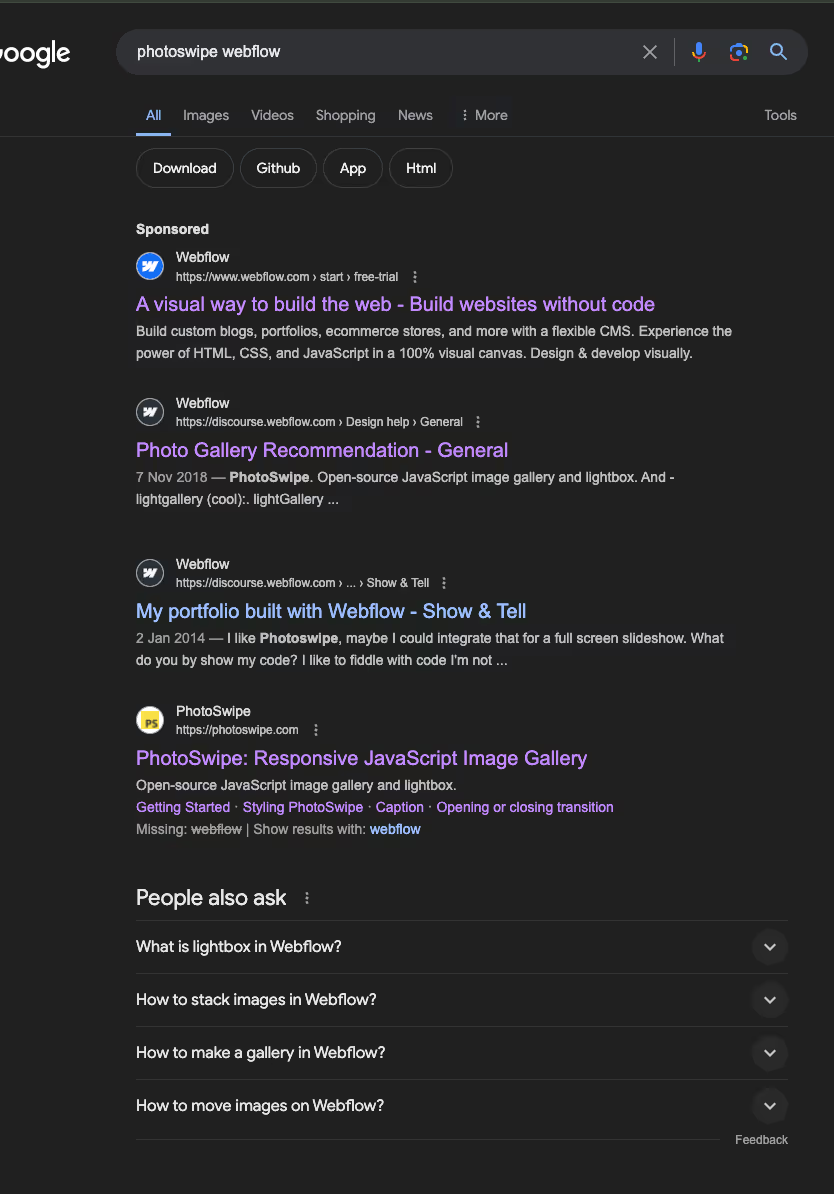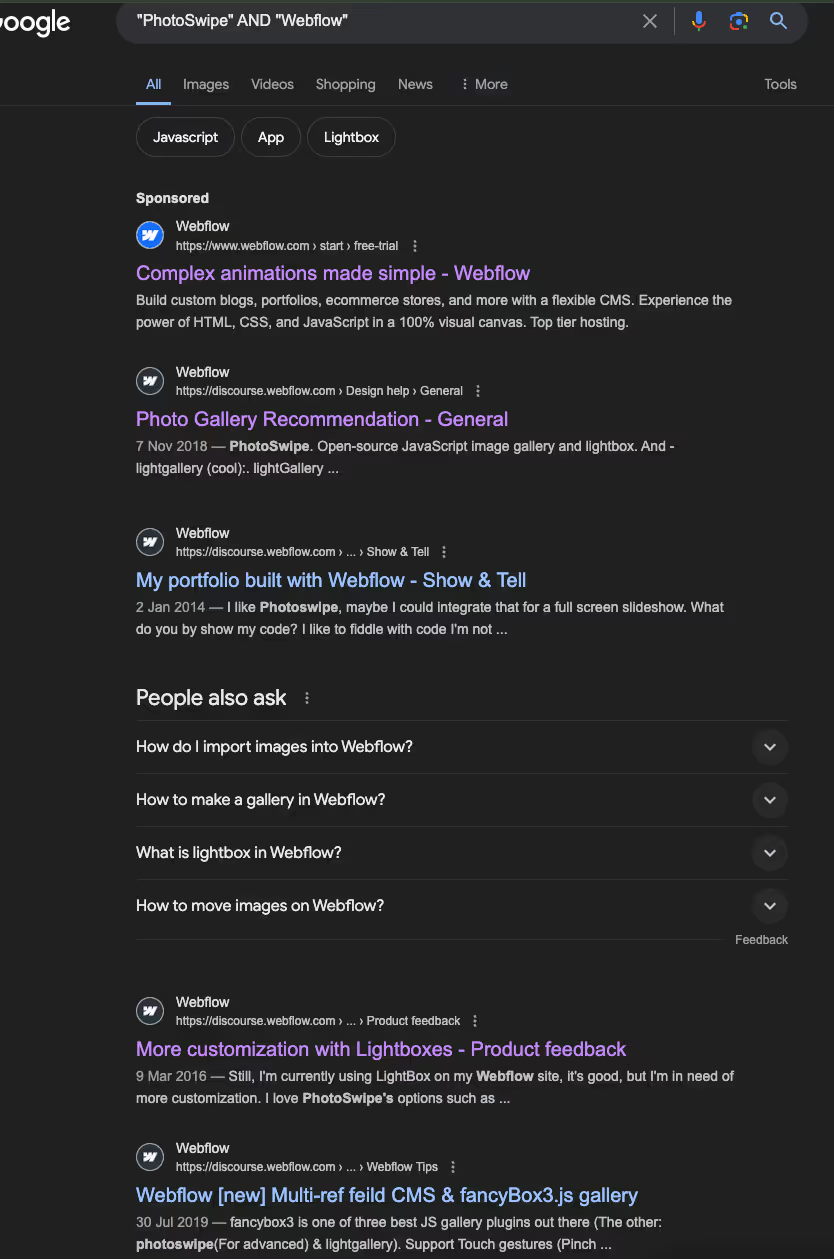Google Dork Cheat Sheet : Use google dorking at it's peak

Google Dorking, also known as Google Hacking, is a technique for writing advanced search queries to uncover hidden information online using specific operators in Google search. This approach is nothing but some keywords which help refine Google’s vast database to deliver highly relevant results that are typically difficult to find through regular search queries. While often associated with cybersecurity, Google Dorking can also be pretty useful for designers, developers, or researchers, allowing them to locate niche content, find creative inspiration, or streamline their research.
Why Google Dorking is Useful
Generally, Google Dorking enhances the precision of your search, saving your time and effort when looking for specific resources. Standard searches often returns a broad mix of results, where relevant information often ends up mixed with irrelevant information. For an instance, a typical Google search query without site-specific operators like ‘UX Design competitor-site.com’ ****would display a wide range of results, including any sites that either contains the keyword "UX Design" or "competitor-site.com" or both. The results might also include some scattered mentions on the competitor’s site itself.
However, with Google Dorking, you can refine the your search query for more precise results. For an instance, structuring the the aforementioned query as ‘ site:competitor-site.com "UX Design" ‘ will display only those pages on the competitor’s website that contains the keyword "UX Design." This approach narrows down your results to the exact content you’re interested in, enabling direct access to topics covered by the competitor, high-performing ideas, and potential content gaps. By focusing the search in this way, Google Dorking saves time and makes it easier to uncover precise, valuable information.
A Personal Experience with Google Dorking
Recently, when advanced tools like ChatGPT and Gemini were briefly unavailable, the alternative I had to resort to for finding precise information online was Google. Standard searches can be hit or miss, as they often include a mix of relevant and irrelevant results. This was the case when I wanted to integrate PhotoSwipe in Webflow (and the AI tools were temporarily down) and typing in “PhotoSwipe Webflow” returned all sorts of wesbite pages. Some pages discussed PhotoSwipe, others mentioned Webflow, but very few were actually relevant to my needs as you can see in the screenshot.

Using Google Dorking in this case became the perfect solution. I structured the query as "photoswipe" AND "webflow" and the results were restricted to pages that contained both keywords, thus filtering out anything that wasn’t directly related. This approach has helped me save time and quickly locate focused resources that addressed my specific needs.

Google Dork Cheat Sheet
Let's explore some commonly used Google Dork commands that can be useful for designers, developers, and researchers:
1. Exact Phrase Search
- Query: "webflow animation"
- Description: Searches for websites that contains the exact phrase “webflow animation”, avoids pages where these words are separate.
2. Filetype Search
- Query: "UX best practices" filetype:pdf
- Description: Returns pdf only that contains the phrase “UX best practices”, which can be helpful when you’re looking for whitepapers, guides, or case studies in a specific format.
3. In-Site Search
- Query: site:medium.com "webflow design tips"
- Description: Returns results only from the site medium.com that contains the phrase “webflow design tips”, which can be helpful for locating articles, blog posts, or specific resources within a single website.
4. Excluding Keywords
- Query: "responsive design" -template
- Description: Returns pages that contains the phrase “responsive design” that exclude the term “template”, which can be perfect when you need information on responsive design techniques without focusing on template-based solutions.
5. Wildcard Search
- Example: "how to * in Webflow"
- Description: The asterisk (*) in the query acts as a wildcard, which is useful when you’re searching for tutorials or specific processes in Webflow, such as “how to animate in Webflow.” or “how to add blogs in Webflow”
How Designers and Developers Can Use Google Dorking
Despite its reputation for being a tool for hackers and security experts, Google Dorking offers designers and developers powerful methods for research, ideation, and content gathering:
For Design Inspiration
- File Searches for Visual Assets: Queries like filetype:png or filetype:jpg can be used to locate specific images or graphics that might inspire design work or showcase style trends.
- Tracking Design Trends Over Time: Queries like "minimalist logo design" after:2018 before:2020 can be used to return results that could offer insights into styles that were popular in that range of years.
For Technical Troubleshooting
- Code-Specific Queries: Queries like site:stackoverflow.com "webflow GSAP animation issues" can be used to directly lead to discussions on Stack Overflow addressing Webflow-GSAP integration issues, thus bypassing irrelevant results.
- File Format Searches: Queries like filetype:py can be used to bring up Python snippets, which could be useful for referencing or troubleshooting code examples.
For Competitor Research
- Search for Whitepapers and Case Studies: Queries like filetype:pdf "UX best practices" helps in filtering documents on UX best practices in PDF format, which could often feature industry insights.
- Queries like site:competitor-site.com "how we help” could help in reviewing pages related to the competitor’s services or product offerings and thus helping you understand the range of services they offer, how they frame their value, and any unique selling points. This comparison could show opportunities to differentiate your own offerings.
For Content Creation
- Targeted Insights: Queries like site:reddit.com "best website builder" could reveal community discussions around the best website builder, providing valuable user-generated content that can inform your articles, blogs, or presentations.
- Blog Research: Queries like intitle:"web design trends" inurl:blog could help you find blog posts specifically focused on web design trends, which could be helpful for staying updated on industry discussions or drafting your own content.
Why This Matters
Google Dorking could serve as an invaluable tool for designers, developers, and researchers alike. By implementing these search techniques, you could gain the ability to uncover niche information quickly, efficiently, and precisely, making your research more productive and minimizing time wasted on going through irrelevant content.
While AI tools like ChatGPT and Gemini make our research faster and easier, there could be times when they’re not available (like the one I experienced personally). In those times, Google becomes our go-to resource, and knowing these search techniques can make a big difference in finding what we need effectively.
Google Dorking may have its roots in cybersecurity, but its application spans much further, offering practical benefits for anyone willing to master these techniques. Whether you’re seeking inspiration, troubleshooting, or building competitive insights, Google Dorks can elevate how you gather and utilize information online.




